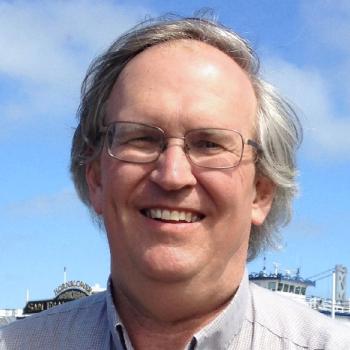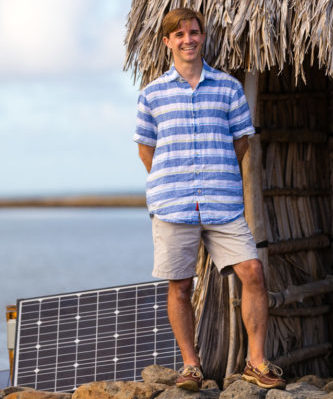Meet the Staff
Mentors
Stanford University Lecturer

Steve Weinstein, PhD
With a background that spans technology, product development, and entertainment, Steve Weinstein has been focused on where media meets technology. Currently Steve is the founder and CEO of MovieLabs. Steve is also the co-founder of KineTrope a small design shop for small consumer and professional electronics. Additionally, Steve is currently teaching entrepreneurship at U.C. Berkeley and at Stanford.
Previously, Steve served as CTO of Deluxe Entertainment, a 6,000 person post production house, and CTO at Rovi Corporation where he guided the transition from physical technologies to e-commerce, connected home, secure and subscription services. Additionally, Steve held the role of Chief Technology Officer at Vicinity, a mapping company acquired by Microsoft in 2002. Steve was also a founding executive and Chief Strategist and Technologist at Liberate Technologies, an interactive television software company. Further back in his career, Steve held executive-level positions at Microprose/Spectrum HoloByte (game company), Electronics for Imaging (print processing), and Media Cybernetics (image processing). Steve also was chief architect at Ship Analytics for real time ship, sub and helicopter trainers. Steve started his career at Naval Research Laboratory in the area of advanced signal processing, computer language design, and real time os development.scing elit. Ut elit tellus, luctus nec ullamcorper mattis, pulvinar dapibus leo.
University of Hawai'i at Manoa Professor

Brian T. Glazer, PhD
rian Glazer is a professor in the Department of Oceanography, in the School of Ocean and Earth Science and Technology, at the University of Hawai’i at Manoa. He serves on the National Science Foundation’s Ocean Observing Initiative Facilities Board as well as the Deep Submergence Science Steering Committee.
Glazer has 21 years of experience in ocean observing science, both at deep-sea volcanoes and the coastal zone. He earned a B.S. degree in Biology from the Pennsylvania State University in 1997, M.S. in Marine Sciences from the University of Delaware in 1999, and Ph.D. in Marine Sciences in 2004, also at UD. In 2004, Brian was awarded a postdoctoral fellowship with the NASA Astrobiology Institute, and in 2006 he was appointed as assistant professor of oceanography.
Glazer’s research involves autonomous samplers, chemical analyzers, and assets from the National Deep Submergence Facility, including the human-occupied submersible Alvin, ROV Jason-II, and AUV Sentry. Glazer has sailed on two dozen research expeditions, spending between 1-3 months at sea per year over the past 20 years. For the past three years, Glazer focus has shifted to the interface between chemistry and biology within coastal Hawaii, especially within loko i’a (traditional Hawaiian fishponds). His group has developed affordable sensors, instruments, and a web-based data platform and maintains over 130 real-time sensors in five states. Glazer’s funding sources have included NSF, NOAA, NASA, Gordon and Betty Moore Foundation, Schmidt Ocean Institute, Schmidt Marine Technology Partners, and the Posner Foundation.
Senior Director of Engineering @ Google

Radhika Malpani
Radhika Malpani has over 30 years’ experience in the technology sector, working at leading organizations including Google, Hewlett Packard and Siemens. A graduate of UC Berkeley, she is an entrepreneur at heart, creating innovative new product lines in every role she undertakes.
At Google, Radhika was a Senior Engineering Director, responsible for initiating and scaling up several critical products over a period of two decades. Starting with leading Google Ads in 2000, Radhika founded Google Images, growing it to over 1B queries/day. In addition to starting Google Local Search, she also led Google Travel Search to help users better plan their leisure trips.
Radhika has always been interested in the application of technology for social impact, and left Google in mid 2019 to focus full-time on helping mission-oriented startups scale. She uses her extensive experience with building and scaling successful products and organizations, to help founders think through important strategic issues. Radhika is currently a board member of Nexleaf Analytics, Simprints, Island Conservation, and Educate!, as well as advising several startup founders and foundations.
In line with her goal to benefit the social impact sector, not just by leveraging technology, but also by adopting the processes and mindsets of Silicon Valley’s leading technology firms, Radhika has partnered with professors at Stanford and UC Santa Cruz to address environmental challenges. This group has teamed up to create and teach a new class, Hacking4Oceans, which uses lean methodologies to solve problems critical to the health of oceans. She is now working on expanding this concept nationally to address other conservation issues.
Teachers
Program Manager @ STEMworks
University of Hawai'i at Manoa Professor

Katie Taladay, PhD
Radhika Malpani has over 30 years’ experience in the technology sector, working at leading organizations including Google, Hewlett Packard and Siemens. A graduate of UC Berkeley, she is an entrepreneur at heart, creating innovative new product lines in every role she undertakes.
At Google, Radhika was a Senior Engineering Director, responsible for initiating and scaling up several critical products over a period of two decades. Starting with leading Google Ads in 2000, Radhika founded Google Images, growing it to over 1B queries/day. In addition to starting Google Local Search, she also led Google Travel Search to help users better plan their leisure trips.
Radhika has always been interested in the application of technology for social impact, and left Google in mid 2019 to focus full-time on helping mission-oriented startups scale. She uses her extensive experience with building and scaling successful products and organizations, to help founders think through important strategic issues. Radhika is currently a board member of Nexleaf Analytics, Simprints, Island Conservation, and Educate!, as well as advising several startup founders and foundations.
In line with her goal to benefit the social impact sector, not just by leveraging technology, but also by adopting the processes and mindsets of Silicon Valley’s leading technology firms, Radhika has partnered with professors at Stanford and UC Santa Cruz to address environmental challenges. This group has teamed up to create and teach a new class, Hacking4Oceans, which uses lean methodologies to solve problems critical to the health of oceans. She is now working on expanding this concept nationally to address other conservation issues.
